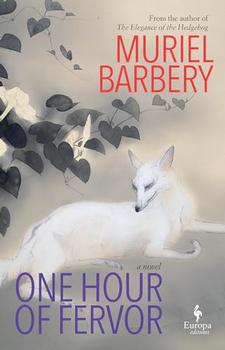Summary | Excerpt | Reviews | Beyond the book | Read-Alikes | Genres & Themes | Author Bio

Kazu is a ghost, seemingly condemned to haunt one of Japan's busiest train stations, the grounds of which served as a makeshift home to him throughout his final years. Observing those who come and go on a daily basis, he reflects on the events that led him to a tragic end: dejected, alone, with nowhere and nothing to call his own.
Our narrator was born into poverty in the same year his country's emperor was born into luxury. Throughout the narrative, author Yu Miri juxtaposes the very different paths their lives took from that moment. This allows for a simple yet powerful look at class divides in Japan: the privilege and safety gifted to the imperial family by their wealth sitting in stark contrast with the financial hardship that is passed to each subsequent generation of Kazu's family.
As Kazu catches snippets of conversations from those bustling around Tokyo, we are reminded that everyone we pass on the street is preoccupied by their own thoughts, feelings and circumstances. There is something comforting in this notion—that our voice is one in a chorus of many—but it could also go some way towards explaining why the homeless population is routinely ignored by much of society. The book suggests that with the rush of inner-city life being increasingly all-consuming, and division between classes so exact, it has become all too easy for many of us to go about our days ignorant to the struggles of others, so wrapped up are we in the minutiae of our own lives.
The things Kazu sees and hears often spark memories from his past, meaning his narration shifts focus, weaving back and forth through time. This loose approach to linearity allows plot points to be revealed organically, while also reflecting the unpredictable nature of memory. On the other hand, a few of these narrative tangents feel somewhat extraneous. Occasional sections detailing the lives of Kazu's ancestors provide interesting cultural detail and historical context, but his personal struggles are so emotionally compelling that the book is always at its strongest when it sticks close to him.
The presiding tone throughout is one of nostalgia and melancholy. This, coupled with crystalline prose, preserves a lightness of touch that makes the book a pleasure to read despite its often-upsetting subject matter. With grief and suffering never far away, it would have been easy for the novel to feel heavy. While there is certainly a sense of pathos that looms over everything, it is handled with sensitivity and nuance. As such, each moment of heartbreak seems earned by the author's thematic groundwork, rather than gratuitous or emotionally manipulative.
By framing the story as she does, through the eyes of a uniquely omniscient and otherworldly narrator, Yu is able to evoke the personal, familial and national toll of poverty with equal fervor. Ranging from the sacrifices of a father desperate to give his children greater opportunities than he had, to the exploitation of workers drafted in to prepare the country for the Olympics, the novel is all the more impressive considering its relative brevity. Seamlessly translated into English by Morgan Giles, Tokyo Ueno Station is a heartfelt insight into the human cost endured by those pushed to the fringes of society as a direct result of their socioeconomic standing.
![]() This review was originally published in The BookBrowse Review in June 2020, and has been updated for the
July 2021 edition.
Click here to go to this issue.
This review was originally published in The BookBrowse Review in June 2020, and has been updated for the
July 2021 edition.
Click here to go to this issue.

If you liked Tokyo Ueno Station, try these:

Madame Sosostris and the Festival for the Brokenhearted
by Ben Okri
Published 2025
In this modern fable with the impish magic of A Midsummer Night's Dream, a masked ball makes two upper-class British couples see each other in a new light.
A wise, enchanting novel about love, power, and our many selves—past and future, public and private—from the Booker Prize–winning author.

by Muriel Barbery
Published 2024
From the best-selling author of The Elegance of the Hedgehog comes a family story with a difference, a novel about the decisions one makes and the destiny they determine by one of Europe's most brilliant and stylistically subtle authors.
Your guide toexceptional books
BookBrowse seeks out and recommends the best in contemporary fiction and nonfiction—books that not only engage and entertain but also deepen our understanding of ourselves and the world around us.